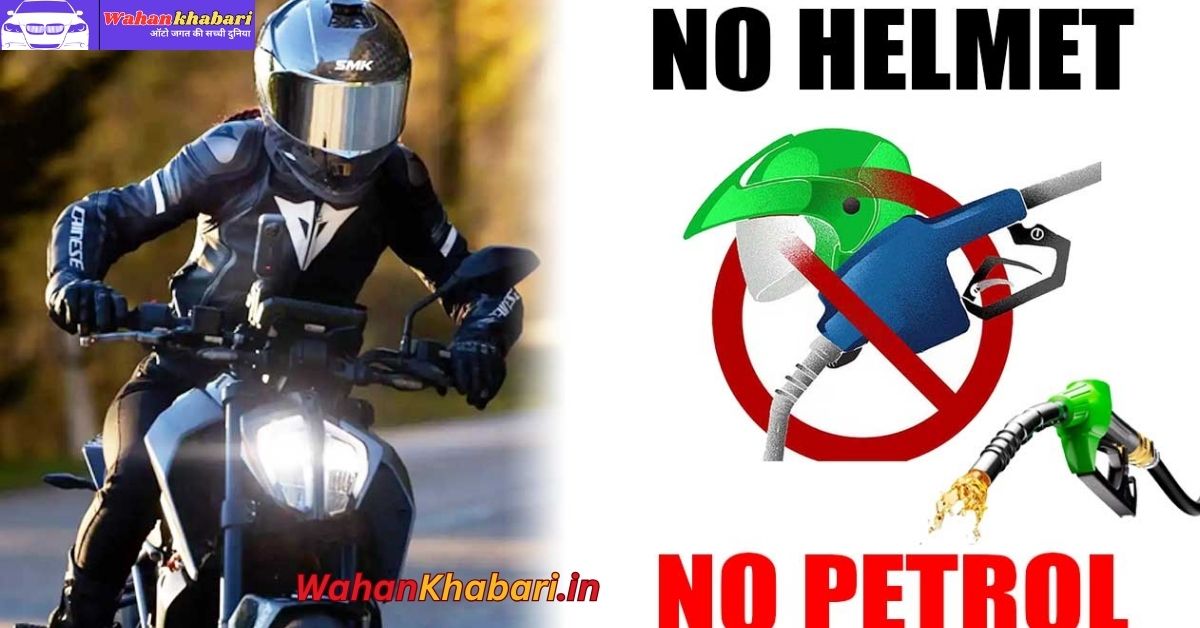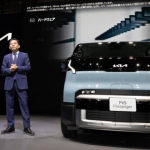Starting this August, a transformative rule is taking effect across various parts of India: “No Helmet, No Petrol.” Under this new regulation, two-wheeler riders without helmets will be denied fuel at petrol stations. This move, while seemingly strict, is part of a broader initiative to reinforce road safety and reduce the alarming number of fatalities resulting from motorcycle and scooter accidents.
Why This Rule Matters
According to the Ministry of Road Transport and Highways, India records one of the highest numbers of road accident fatalities globally, with two-wheeler riders accounting for a significant share. In 2022 alone, more than 45,000 two-wheeler riders died due to head injuries — a majority of whom were not wearing helmets.
Helmets reduce the risk of head injury by over 70% and the risk of death by nearly 40%. Despite this, compliance with helmet laws remains low in many states. The “No Helmet, No Petrol” rule aims to correct this behavior not through fines or arrests, but by hitting where it hurts — access to daily necessities.
The Logic Behind the Rule
Enforcement of helmet laws has always been a challenge for authorities. Even in places where helmet rules exist, riders often wear them loosely, strap them incorrectly, or simply remove them once out of the sight of police.
The new rule seeks to shift the responsibility from the police to petrol pump attendants and the general public. Fuel stations become checkpoints, and refusal of petrol becomes a form of soft enforcement that’s harder to ignore.
Moreover, the rule is a behavioral nudge — when riders know they can’t get fuel without wearing a helmet, they’re more likely to carry it as part of their daily routine. Over time, the hope is that helmet-wearing will become a habitual practice, much like wearing seatbelts in cars.
Implementation Across States
While the policy has been introduced at the national level, its implementation is being rolled out in phases by different states. Some states, like Tamil Nadu, Karnataka, and Maharashtra, have already begun enforcement drives, while others are still conducting awareness campaigns.
Petrol pump operators have been instructed to display prominent signage reading “No Helmet, No Petrol” and to train attendants to enforce the rule uniformly. Authorities have also been asked to monitor petrol pumps for compliance, and strict penalties may be levied on pumps that repeatedly ignore the directive.
Public Reaction: Mixed but Hopeful
As with any regulation affecting daily life, public reaction has been mixed. Many citizens welcome the rule as a much-needed safety measure. Parents, especially, feel reassured that their children will be less likely to take unnecessary risks on the road.
However, some riders see it as an inconvenience, particularly those who travel short distances and do not feel the need to wear helmets. Others argue that it’s unfair to make fuel attendants enforce the rule, as it puts them in potentially confrontational situations.
Despite these concerns, the overarching sentiment is one of cautious optimism. The memory of friends and family members lost in preventable accidents weighs heavy on many minds — and people recognize that some inconvenience is a small price to pay for saving lives.
A Step Toward Broader Road Reforms
The “No Helmet, No Petrol” rule is not just a safety measure — it’s a cultural shift. It signals a government willing to take bold steps to protect citizens, even when those steps might not be immediately popular. It’s part of a larger vision to build safer roads, reduce traffic fatalities, and promote responsible driving behavior.
Authorities are also encouraging states to combine this rule with other safety measures — such as mandatory helmet rules for pillion riders, better urban road planning, and improved traffic enforcement mechanisms.
Final Thoughts
The success of this initiative depends not just on government enforcement, but also on public cooperation and a shift in societal mindset. Road safety is not just a personal responsibility; it’s a public good. Every rider who wears a helmet not only protects themselves but sets a standard for others.
As this rule rolls out across the country, it is essential for all stakeholders — riders, petrol pump staff, law enforcement, and policymakers — to work together. Awareness campaigns, community engagement, and consistent implementation will be key to ensuring that this initiative achieves its intended impact.

Hello, my name is Muskan Kumari and I am an experienced Digital Marketer. I have been blogging for the last 3 years and I have special interest in SEO. Here I give you easy bikes and writes easy-to-understand reviews and news about the latest bikes, helping readers choose the best options.. My aim is to always provide you with accurate, new and useful information.










